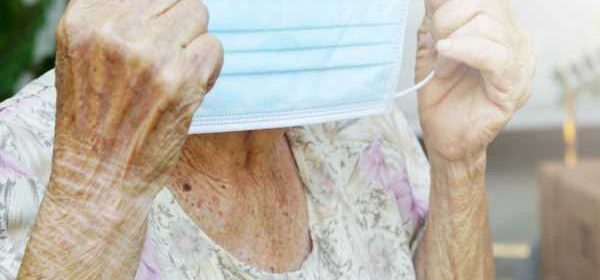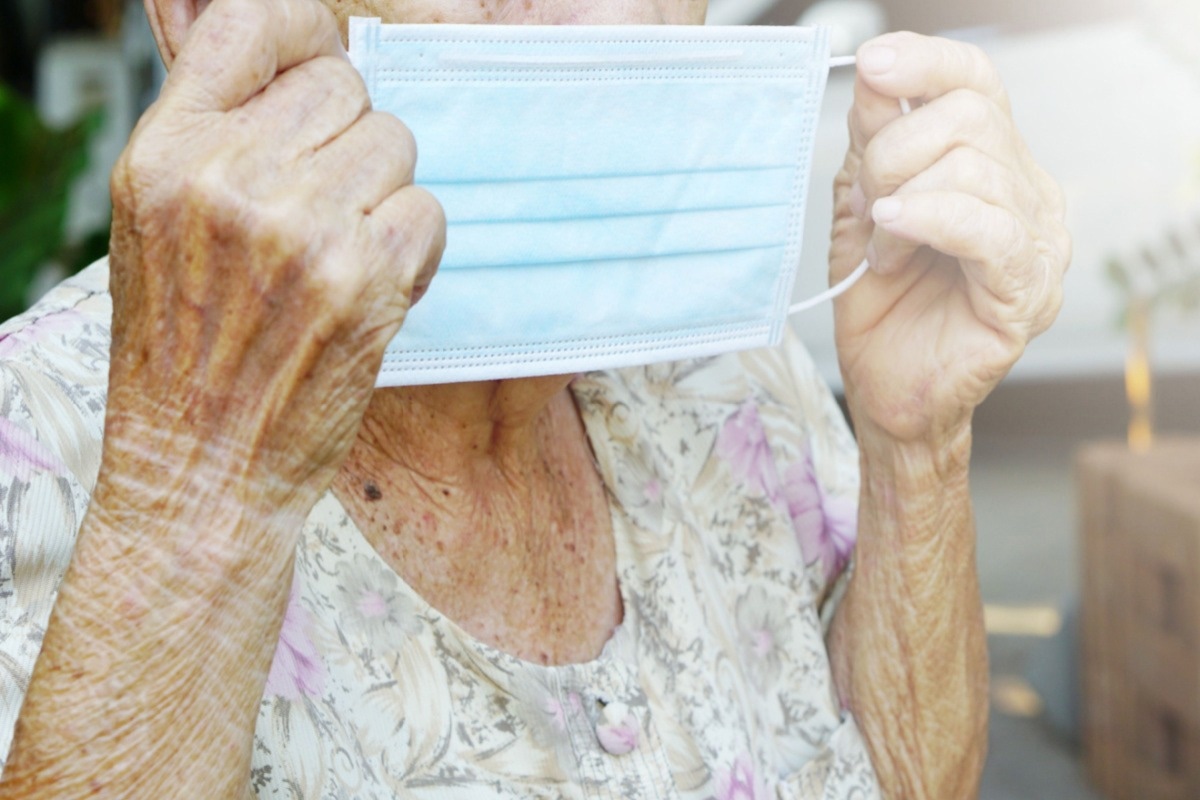What is the safety of Molnupiravir against SARS-CoV-2 in the elderly?

With lockdown restrictions easing in many countries, coronavirus disease 2019 (COVID-19) is becoming more prevalent among the elderly. Newer variants of concern (VOCs) of the severe acute respiratory disease coronavirus 2 (SARS-CoV-2) render a high risk of serious infections, hospital admissions, complications, and death, especially among the frail and elderly.

An article posted to the Research Square* preprint server assessed the safety of the oral administration of Molnupiravir to elderly patients – those aged 80 or older, hospitalized with COVID-19.
Background
Globally, the COVID-19 pandemic has had devastating effects. In particular, the elderly face the greatest risks and obstacles. The treatment of older adults hospitalized with COVID-19 should be initiated as soon as possible to minimize the risk of disease progression. Additionally, these therapies should be simple to administer to limit the disease progression risk.
The compound Molnupiravir is a specific molecular ribonucleoside prodrug of N-hydroxycytidine (NHC), which circulates systemically after its oral administration and is phosphorylated by cells into NHC triphosphate. Molnupiravir introduces deleterious mutations into the viral genome, rendering the virus noninfectious and incapable of replication.
A recent study concluded that oral Molnupilavir is effective for treating COVID-19 in unvaccinated, non-hospitalized patients who are at risk of developing severe disease if started within five days of the onset of signs or symptoms of SARS-CoV-2 infection. In the present study, the safety and efficacy of oral administration of Molnupiravir to elderly hospitalized patients were studied.
The study
In this study, researchers examined the efficacy and safety of treatment with Molnupiravir, administered orally within 24 hours of the onset of symptoms in elderly hospitalized patients with at least one laboratory-confirmed risk factor for COVID-19 infection.
The participants included 29 seniors over 80 years (median age 87 years; age-range 80-100 years) who received the drug. For five days, 800 mg of Molnupiravir was given in four divided doses, twice daily. Alterations in platelet levels and liver enzymes were analyzed to determine the likelihood of drug-induced liver impairment.
According to the United States Food and Drug Administration (US FDA) and the World Health Organization (WHO) recommendations, the target elderly population has at least one of the following risk factors – chronic kidney disease (CKD), chronic obstructive pulmonary disease (COPD), active cancer, obesity characterized by a body mass index (BMI) of 30, serious heart conditions, and diabetes mellitus (DM).
Findings
Patients with detectable viral ribonucleic acids (RNAs) in their nasopharyngeal samples were administered Molnupiravir orally for five days per the protocol. Ten days following the oral delivery, a temperature of 38 degrees was recorded once (in group A), twice (in group B), and three or more times (in groups C)
Patients in groups A and B experienced a fever of 38 degrees or higher, which decreased to 36 degrees or lower, and the fever did not recur. Nonetheless, just one patient in Group B experienced a fever of 38 degrees or higher during the ten-day course. Patients in group C showed a 38-degree temperature or higher that plummeted to 36 degrees or below but recurred at least twice within ten days.
There were no statistically significant variations between the cycle threshold (Ct) values of the A, B, and C groups. However, there were changes in symptoms with the oral administration and intravenous treatment with the drug. During the monitoring period, no deaths were recorded; further, patients with at least one risk factor had no worsening of risk factors. During the monitoring period, there was no thrombocytopenia or renal failure compared to prior dosing. In addition, substantial changes in blood pressure or heart rate could not be detected.
After internal administration, only 55% of target patients reported adverse events, and only nausea was reported while no significant side effects were observed. Therefore, the medicine could be safely administered to older adults. In the elderly patients at risk for COVID-19, early use of Molnupiravir reduced the likelihood of death.
This study had several shortcomings, such as a small sample size, which cannot be used to provide conclusive results. Thus, these findings should be complemented by further research involving a larger sample size.
Conclusion
In summary, the oral administration of Molnupiravir was found to be effective in patients aged 80 years and above, thereby, potentially improving outcomes. This drug also showed efficacy in the prevention of human transmission of SARS-CoV-2 infection in hospital wards.
*Important notice
Research Square publishes preliminary scientific reports that are not peer-reviewed and, therefore, should not be regarded as conclusive, guide clinical practice/health-related behavior, or treated as established information.
- Gonda, K., Suzuki, K., Kono, K., & Takenoshita, S. (2022). Safety of oral administration of Molnupiravir for hospitalized elderly people aged 80 years old or older with Covid-19. Research Square. doi: https://doi.org/10.21203/rs.3.rs-1815198/v1 https://www.researchsquare.com/article/rs-1815198/v1
Posted in: Medical Science News | Medical Research News | Disease/Infection News
Tags: Blood, Blood Pressure, Body Mass Index, Cancer, Chronic, Chronic Kidney Disease, Chronic Obstructive Pulmonary Disease, Compound, Coronavirus, Coronavirus Disease COVID-19, covid-19, CT, Diabetes, Diabetes Mellitus, Efficacy, Fever, Food, Genome, Heart, Heart Rate, Hospital, Kidney, Kidney Disease, Laboratory, Liver, Medicine, Nasopharyngeal, Nausea, Obesity, Pandemic, Platelet, Renal Failure, Research, Respiratory, Respiratory Disease, SARS, SARS-CoV-2, Seniors, Severe Acute Respiratory, Thrombocytopenia, Virus

Written by
Nidhi Saha
I am a medical content writer and editor. My interests lie in public health awareness and medical communication. I have worked as a clinical dentist and as a consultant research writer in an Indian medical publishing house. It is my constant endeavor is to update knowledge on newer treatment modalities relating to various medical fields. I have also aided in proofreading and publication of manuscripts in accredited medical journals. I like to sketch, read and listen to music in my leisure time.
Source: Read Full Article